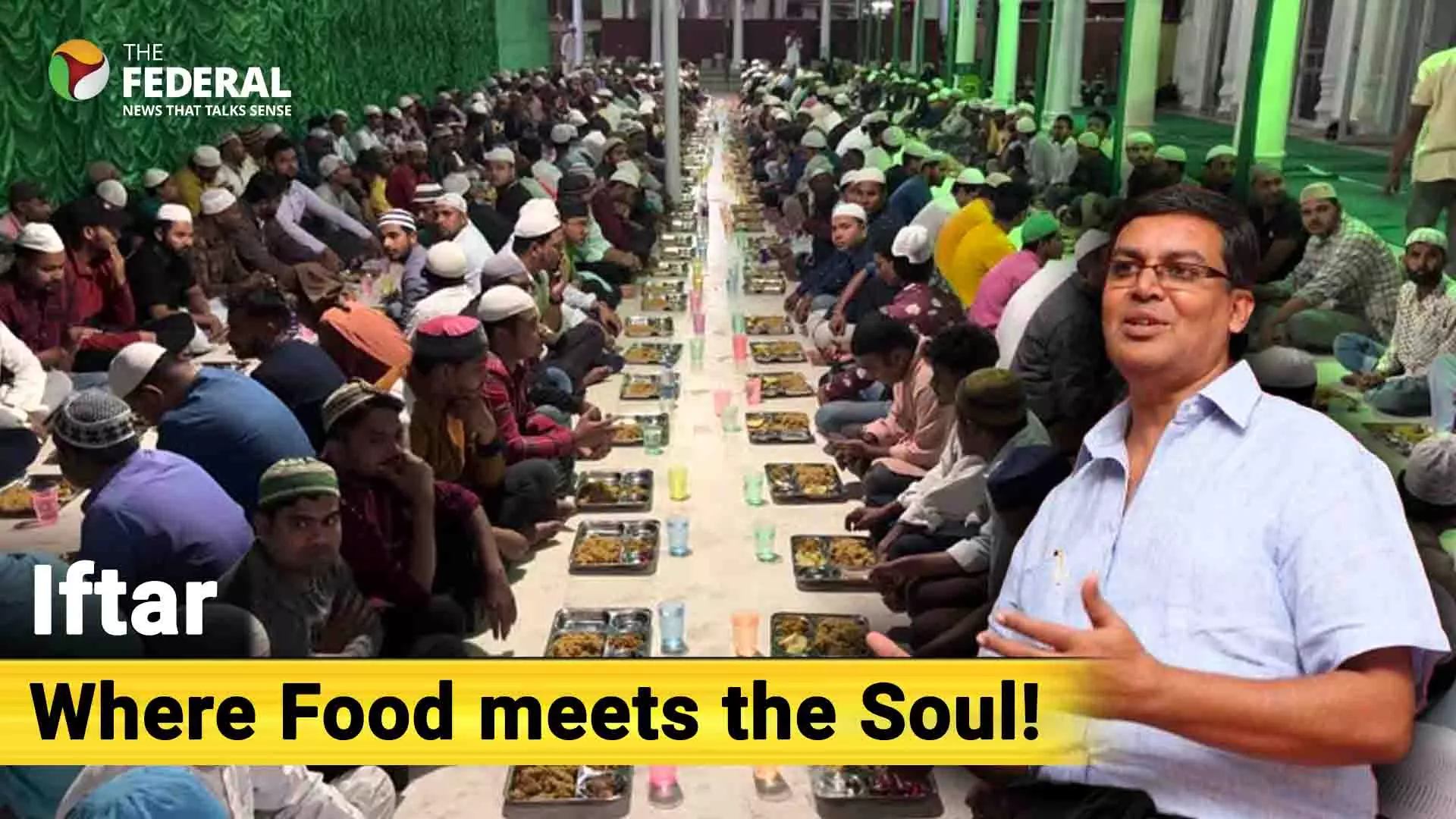
Ramadan in Chennai: Food, faith and unity over Iftar
Let’s take you on a flavourful journey through South India’s Iftar traditions during Ramadan, where food heals, faith unites, and culture shines

During the holy month of Ramzan, as the sun dips below the horizon, Muslims across the world break their day-long fast with a meal called Iftar. It begins with the simplicity of a date and a glass of water, following the tradition of Prophet Muhammad, but evolves into a deeper celebration of unity, spirituality, and culture.
Iftar is not just about food—it's a ritual that transcends borders and beliefs. In India, particularly in Tamil Nadu, the tradition of Iftar brings together diverse communities, where the act of sharing a meal becomes an act of love and service.
Recognized by UNESCO in 2023 as an 'intangible cultural heritage', Iftar continues to serve as a reminder that food can be both divine and deeply human.
Part of Ramzan is about food, but Iftar is something beyond the meal. It's a moment of spiritual pause and communal love.
Also read: 'Modi-Dhami' free food kits to be given to poor Muslims on Eid: Uttarakhand Waqf Board
Documentary filmmaker and historian Kombai Anwar says, "Muslims fast from dawn to dusk, refraining from food and water—even from swallowing saliva. This form of strict fasting is one of the five pillars of Islam, aimed at fostering empathy and discipline."
Flavours of Tamil Nadu
Down south, Tamil Nadu’s Muslim communities prepare a dish called nombu kanji, a hearty porridge made with rice, lentils, and sometimes chickpeas. It's paired with a sweet, a snack, and a drink. Another essential item is sea moss, which helps cool the body after hours of fasting.
The nuances of the kanji vary from region to region. In Chennai, more ginger and garlic paste is used. In Tanjavur, Pudukottai, and Tiruchi, it is less spicy with fewer masalas.
"Tamil Nadu’s Iftar offerings reflect its rich history of spice trade and shared culinary traditions. The connection between local Hindu customs and Muslim fasting rituals is visible—similar to the communal preparation of kool during Amman worship," Anwar explains.
Also read: TVK chief-actor Vijay hosts Iftar event, wearing skull cap
Haleem and harmony
In Hyderabad, haleem—a slow-cooked porridge of meat and wheat introduced during the Nizam era—takes centre stage. It earned a geographical indication tag in 2010, the first non-vegetarian dish to do so.
In Chennai, the Wallajah Mosque tells a remarkable story of unity. For over 40 years, the Sufidar Trust, run by Sindhi Hindus, has been preparing and serving Iftar meals daily during Ramzan.
"They should have had bitter memories of Partition... but their Guruji is trying to overcome it with love, They think this is a holy month, and this is the way they can serve," Anwar shares.
Traditions of generosity
Historian Anwar said, "In many Tamil Nadu towns, it’s common for Hindu families to sponsor Iftar meals, a tradition that has existed for decades. Mosques invite contributions, and families—regardless of religion—sponsor a day's meal for around Rs 9,000–10,000," highlighting communal harmony in Tamil Nadu.
"There are Hindu families which do this traditionally... They may not be Muslims, but it's a tradition that is followed," he added
Even in the Gulf, Tamil Muslim mosques serve Kanji to thousands, continuing the tradition among migrant communities. The Kanji ritual also extends to Malaysia and Southeast Asia, where Tamil Muslims have lived for centuries.

